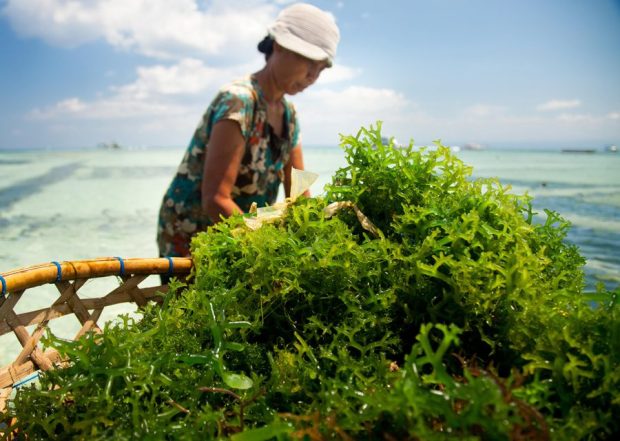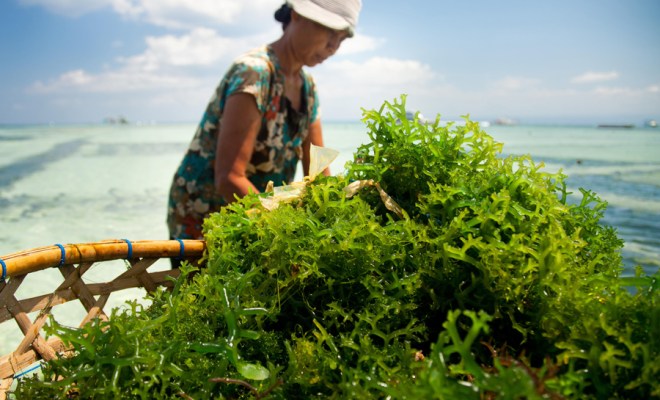
There’s a new superfood in town. And it isn’t kale.
Seaweed may be the hot new food trend in the United States, but the green leaves of this sea have been used in Asian cooking for thousands of years. Seaweed is not only low in calories and fat, but also filled with important nutrients like vitamins A, B, and C. Better yet? Research shows it’s a good source of antioxidants and calcium and can stop and reduce inflammation.
You may know seaweed as the crunchy, salty snack or wrap that holds sushi rolls together. What you may not know is that seaweed is a crucial food ingredient that enhances the taste of food, makes it better for us, and benefits the environment.
For example, carrageenan, an ingredient naturally derived from red seaweed, makes our ice cream creamy, keeps the chocolate milk from separating and is the reason why the ground nuts in our peanut milk do not settle to the bottom of the carton. It can even be used as a substitute for sodium in deli meats and to replace fat and sugar in other foods.
Some sweets, such as puddings and gummy candies, get their unique texture from gelatin, an animal substance. But what about those following a vegetarian or Halal diet? Fear not, seaweed is here! Vegetable carrageenan can be used rather than gelatin to make sure this delicious snack is vegetarian, vegan, kosher and kosher.
Another way seaweed enhances the food we eat every day? Alginate, also a seaweed-based ingredient, is added to baked goods, such as bread, and even your favourite energy bars to make them taste better and stay fresh longer. Alginate is also used to foam beer and replace fat in low-fat ice cream.
But seaweed does not just benefit the food we eat; it is also good for the environment and the people who grow it.
Seaweed is probably the most sustainable and environmentally friendly crops on the planet. It doesn’t require fertilizers, pesticides or other chemicals used in land-based farming. And seaweed absorbs carbon and cleans seawater of phosphorus and nitrogen. Some scientists and researchers believe that seaweed might even become a biofuel in the future.
More than 75,000 farmers worldwide depend on seaweed farming to support their families. Before they started cultivating carrageenan seaweed, many coastal communities lived at or below the poverty line. With the income they earn from harvesting carrageenan seaweed, these farmers are able to repair their homes, improve their diet and send their kids to school. And in some countries, seaweed harvesting is a way out of poverty for girls who don’t have any access to other jobs.
Seaweed is not just a healthy snack or an ingredient that makes our favourite foods taste better and is better for us. It revolutionized dinner plates and economies around the globe, restoring our oceans and improving lives.
For more information about the benefits of seaweed, including how it is used in the foods we love, visit www.foodsciencematters.com.











